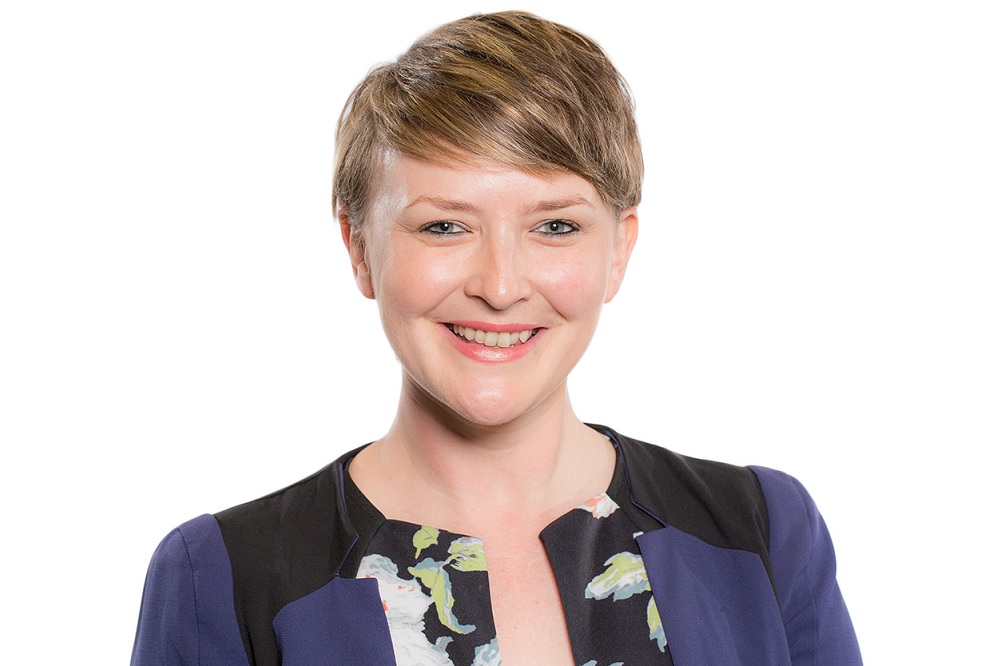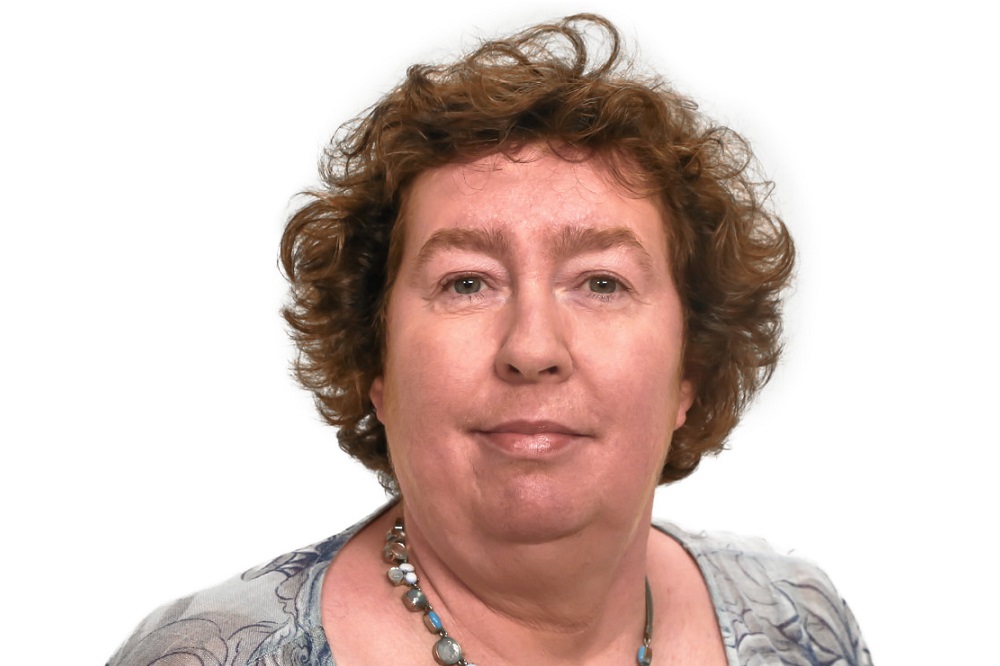Senedd roundup: Call for Cabinet Minister for the Valleys

Owen Donovan, Senedd Home
This week’s short debate was on the economic prospects of the coalfields, led by Vikki Howells AM (Lab, Cynon Valley).
35 years since the end of the miners’ strike
March 2020 marks the 35th anniversary of the end of the 1984-85 miners’ strike and the legacy of coal remains. The coalfields are generally defined as areas where at least 10% of men were employed in the coal industry.
The coalfields (across the UK as a whole) are older than average, have a population growing at a slower rate than the UK average, have a lower life expectancy and below-average job growth – with just 55 jobs for every 100 people of working age compared to a 75-per-100 UK average.
That said, maybe the picture isn’t all bad:
“Perhaps the net impact of all this taken together is that 42% of all coalfield neighbourhoods are within the 30% most deprived in Britain. In reality, this figure is lower than that for main regional centres excluding London. This suggests that coalfield areas aren’t doing that badly. This is an important point as it emphasises that the fate of the coalfield isn’t necessarily so bleak. Whereas 52% of south Wales coalfield’s lower layer super output areas are among the 30% most deprived, some of the coalfields are doing quite well. Why is that the case?”
– Vikki Howells AM
The answer to that question was infrastructure and agglomeration. Yorkshire shares many similar characteristics to the Welsh coalfields, but has a much more developed transport infrastructure and several large cities like Leeds and Sheffield, while the Welsh coalfield is more peripheral.
Vikki Howells called for a Cabinet Minister for the Valley to set objectives for the coalfields and ensure the Valleys remain a top priority of the Welsh Government.
Mick Antoniw AM (Lab, Pontypridd) said one of the problems was the quality of work – while jobs have increased, they’re usually part-time or low paid. That’s why it’s important to develop a social partnership and bring ethical standards to employment.
Big jump in Open University students from the coalfields
Replying on behalf of the Welsh Government, Education Minister, Kirsty Williams (Lib Dem, Brecon & Radnor), said many of the problems in the Valleys were generational and will take a long time to reverse.
She listed several Welsh Government investments in companies based in the Valleys as an example of a move towards providing more high-quality jobs. Though, as you might expect, education and qualifications remain one of the main ways out of deprivation – and there were positive signs on that front.
“Our reforms to student support mean that more students from low participation areas are studying full time, part-time, and for Master’s degrees. Just yesterday, I was speaking at a lifelong learning conference and was able to confirm an 80% increase in new OU students in Wales. Nearly half of the Open University students in Wales come from our most disadvantaged communities….This year, we’ve also seen an 8% increase in university applications from our most deprived areas and that is the best record anywhere in the UK.”
– Education Minister, Kirsty Williams

Committee asked to investigate Six Nations paywall plans
The Motion
The Senedd:
- Notes the importance of sport of all kinds to cultural and civic identity in Wales and believes the ability to enjoy sports should be as accessible as possible to the widest range of our nation’s population.
- Is concerned about reports that coverage of Six Nations rugby matches will only be available to view via pay-per-view in the future.
- Believes that access to national rugby coverage is key to ensuring that young people participate in grassroots rugby.
- Believes that the coverage of Wales Six Nations rugby games should continue to be available for all to view for free and calls on the Welsh Government to do everything in its ability to achieve this.
Sport has to be as accessible as possible
Rhun ap Iorwerth AM (Plaid, Ynys Môn) mentioned how much please he gets from rugby and the growth of youth-grade rugby in Llangefni, but that interest was only generated from people being able to see the game played at the highest level and, like it or not, the men’s national rugby team was the most popular way of generating interest.
“….we only need to look at the viewing figures, not just for specific games, but how many people generally who watch Six Nations games – 82% of the population of Wales. That figure is astonishing, and it does show how much this game is integrated into our culture in Wales.”
– Rhun ap Iorwerth AM
Rhianon Passmore AM (Lab, Islwyn) mentioned how participation in cricket fell after the sport went behind a paywall. With the Women’s Six Nations set to be paired to the men’s game in terms of TV rights, there was a danger that the growth in participation in women’s rugby over the last few years was under threat.
Llyr Gruffydd AM (Plaid, North Wales) described Six Nations matches as “national treasures”, repeating that cricket saw a huge fall in participation since Sky won the rights and audiences for subsequent free-to-air cricket games like the World Cup were massively down on the 2005 Ashes.
“I have huge sympathy for the merits of this motion. I don’t have Sky TV and never have, but the financial model of the WRU is predicated on international rugby. If they can’t bring the revenues in, what’s the alternative to make sure that the grass-roots game and the professional game in Wales can have those revenues to be competitive?”
– Andrew RT Davies AM (Con, South Wales Central)
David Melding AM (Con, South Wales Central) backed calls for the Six Nations to be a listed event/free-to-air only. Wearing both a cricket and rugby hat, Dr Dai Lloyd AM (Plaid, South Wales West) noted the loss of village cricket teams and that money at the top end of the sport didn’t help clubs at the bottom.
Issue of rugby finance “won’t go away”
Deputy Minister for Culture, Tourism & Sport, Dafydd Elis-Thomas (Ind, Dwyfor Meirionnydd) said the issue of money in rugby wasn’t going away:
The Deputy Minister suggested a Senedd Committee considers the matter further and the Interim Chair of the Culture Committee, Helen Mary Jones AM (Plaid, Mid & West Wales) took him up on that offer.
While there was a recorded vote, the motion was unanimously approved.

Proxy voting to be trialled for AMs on parental leave
Yesterday, the Senedd backed a change to the Senedd’s Standing Orders/Rules of Procedure, which will allow AMs on parental leave to vote remotely until the end of the Fifth Senedd in April 2021 (pdf).
The change to the rules follows similar changes at the UK Parliament at the start of 2019 to allow new parents to vote by proxy as part of as 12- month trial. Similar rules are in place in Australia and New Zealand.
Proxy votes will be cast by an AM nominated by the absentee. Proxy voting won’t apply to votes which require a two-thirds/supermajority.
The change coincides with Bethan Sayed AM (Plaid, South Wales West) starting maternity leave. Whether proxy voting will continue beyond April 2021 is a decision that’s been left to the Sixth Senedd.
AMS voted by 39-9 with 1 abstention in favour of the trial.

New cancer strategy must prioritise faster diagnosis to improve survival rates
The Motion
The Senedd:
- Notes that early diagnosis of cancer improves survival chances.
- Notes that the World Health Organisation recommends that all nations should have a strategy on cancer.
- Calls on the Welsh Government to ensure its new cancer delivery plan includes a greater emphasis on earlier diagnosis and to take action to improve the uptake of cancer screening.
Link between chances of survival and speed of diagnosis
David Rees AM (Lab, Aberavon) said that while around half of people born after 1960 will be diagnosed with some form of cancer in their lifetimes, survival rates have improved. Nonetheless, there was a clear link between how quickly someone is diagnosed and their overall chance of survival.
“In Wales, we have seen one-year survival rates increase, along with five-year survival rates. It is clear that early diagnosis is fundamental. This becomes ever more present when we look at harder-to-diagnose cancers, such as lung cancer or pancreatic cancer. Cancers like these have little to no stage 1 symptoms, or symptoms that are non-specific. It is therefore important that any strategy for cancer treatment must include a strong emphasis on early diagnosis.”
– David Rees AM
Nick Ramsay AM (Con, Monmouth) suggested the use of advance algorithms to make the diagnosis of the hardest to detect cancers (in their early stages) much quicker.
Suzy Davies AM (Con, South Wales West) praised the innovative approach taken at Neath Port Talbot Hospital – whereby all the relevant professionals are in the same place from the start – which has seen diagnosis times cut to just 5-6 days from 80 days. The key to this was a changed attitude to “vague symptoms” for cancers which may not be obvious to GPs from the start.
Dr Dai Lloyd AM (Plaid, South Wales West) did, however, warn of a lack of diagnostic staff – such as endoscopists, who don’t necessarily have to be doctors but can be specialised nurses.
The BXP’s Caroline Jones said how a breast tumour she survived was only picked up at the last minute because a consultant noticed it was translucent and didn’t show up. Rhianon Passmore AM (Lab, Islwyn) added that late diagnosis was one of the main reason survival rates (rather than treatment times) was behind most comparable countries.
New strategies being developed for cancer, heart disease and strokes
Deputy Minister for Health & Social Services, Julie Morgan (Lab, Cardiff North), confirmed that the Welsh Government were developing strategies for cancer, heart disease and strokes. The current strategies will be extended by a year to give enough time to develop replacements.
“It will be the case that the successor approach to the cancer delivery plan will have an enhanced focus on the earlier detection of cancer. The current plan recognises that earlier detection is likely to improve survival….The other key component of this primary care referral practice is access to diagnostic care. We have significant amounts of activity in place targeted at these two components, but we want to go further and faster in the years ahead. It’s been very pleasing to hear the praise of the Neath Port Talbot rapid diagnostic centre here today, and the dramatic drop in the waiting time.”
– Deputy Minister for Health & Social Services, Julie Morgan
Taking part in screening programmes was obviously an individual choice, though the Welsh Government’s single cancer treatment pathway – a “standout achievement” – is unique and has built momentum for further improvement.
The motion was carried by 36 votes to one.

Welsh Government gathering evidence on equalities policy after Brexit
Yesterday, Helen Mary Jones AM (Plaid, Mid & West Wales) put forward proposals for a possible future law which would require an equalities audit of private firms that receive funding from the Welsh Government.
While believing equalities should be fully-devolved – citing a tendency by the UK Government to be anti-equality – after Brexit, there was a need to look at how equalities policies would be shaped in Wales.
Women remain, by and large, in lower-paid, insecure work than men, while the employment rate of disabled people remains much lower than the population at large. Although the Welsh Government has lots of guidance for businesses which apply for funding, she believed it was now time to put that on a much firmer legal footing.
“So, this proposed legislation could provide for: equality audits pre-contract; specific binding equality commitments tailored to whichever business it was as part of the contracting process; crucially, equality monitoring during the period of that grant or of that business arrangement; and penalties if those equality commitments are not met without good reason. Sometimes, of course, there will be good reasons why they’re not met, but if they’re not met without reason, then there should be a penalty.”
– Helen Mary Jones AM
Chief Whip & Deputy Minister, Jane Hutt (Lab, Vale of Glamorgan) said legislation would always be considered where it was needed, but it was right to say – as Helen Mary Jones did – that several measures could be used concerning procurement and grants.
“I think key to all of this, particularly in terms of the levers we have, is the economic contract because that’s a real tool for change. In fact, the economic contract has to ensure that businesses are making change and demonstrating responsible business behaviours. We have a great deal of soft power, but it is about how we move forward, when we need to legislate and how we can take account of evidence.”
– Chief Whip & Deputy Minister without portfolio, Jane Hutt
The Welsh Government were continuing research on options to strengthen equalities and human rights after Brexit and that will help inform future decisions on whether a Welsh equalities law was required.
While it doesn’t bind anyone or the government to introduce a Bill, the motion was unanimously approved.

Tata job losses revised downwards
UK job losses at Tata Steel have been revised downwards from an initial 1,000 to 500.
In a statement, Tata said, “Arrangements will be made to commence consultations for the start of April on the proposed organisational changes with the relevant national employee representatives.”
It was unclear as of yet how many jobs would be lost at Tata plants in Wales, with the Welsh Government saying: “There are no further details on where the job losses will fall at this point and we continue to engage with Tata Steel about how this will impact their operations.”
Online symptom checker launched for coronavirus; software rolled-out for GP video consultations
NHS Direct Wales recently launched an online symptom checker for the coronavirus/Covid-19, which will act as the first port of call for those who believe they’ve contracted the virus.
Official advice remains unchanged – don’t go to a GP or hospital, contact the 111 service/NHS Direct Wales and listen to their advice.
Additionally, software has been rolled-out to GPs to enable them to undertake video consultations. While the technology was going to be introduced anyway, the coronavirus pandemic has meant the roll-out has been sped-up.
Health Minister, Vaughan Gething (Lab, Cardiff S. & Penarth) said: “This technology will help people access healthcare advice from their homes, particularly if they are self-isolating because of the virus while helping the NHS cope with an increase in demand. I’m pleased we’re at the forefront of using this digital technology throughout Wales.”
Video links to expand subject choices at rural secondary schools
More schools in rural Wales will be able to take part in video link lessons. The E-sgol technology – which has been piloted in Ceredigion and has routinely been used in rural Scotland – will be expanded to include Powys and Carmarthenshire.
E-sgol co-ordinator Gareth Lanagan told BBC Wales: “What we were finding was there’s a bit of a postcode lottery at the moment in terms of the subjects that are available to kids in different parts of Wales, but this is balancing that out.”
Support our Nation today
For the price of a cup of coffee a month you can help us create an independent, not-for-profit, national news service for the people of Wales, by the people of Wales.






How many geographical areas of Wales would like their own dedicated minister? We have constituency and regional AMs already. Why cant backbench AMs be given more powers to hold the Welsh Governmemt to account and if they had them, would they use them?
Has anyone audited whether these district rather than departmental ministers achieve anything?
If any part of Wales need its own cabinet minister then it should be the North. They feel more alienated from Cardiff than anywhere else.